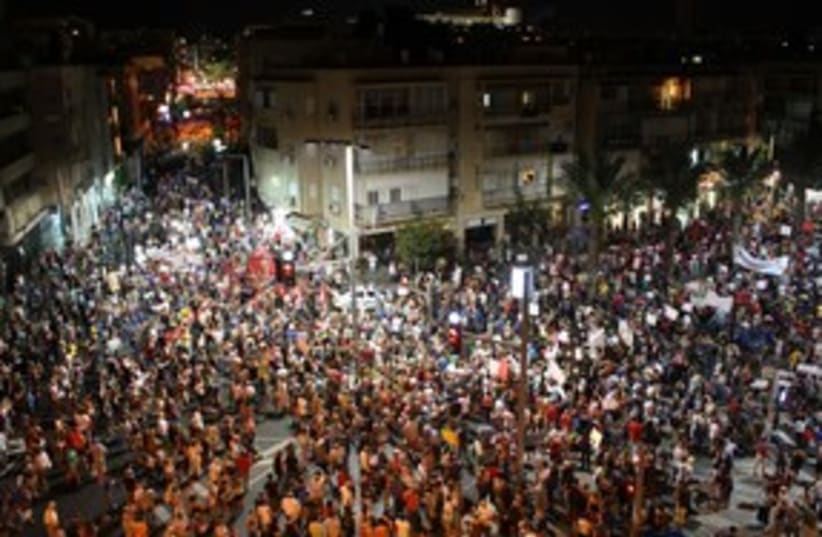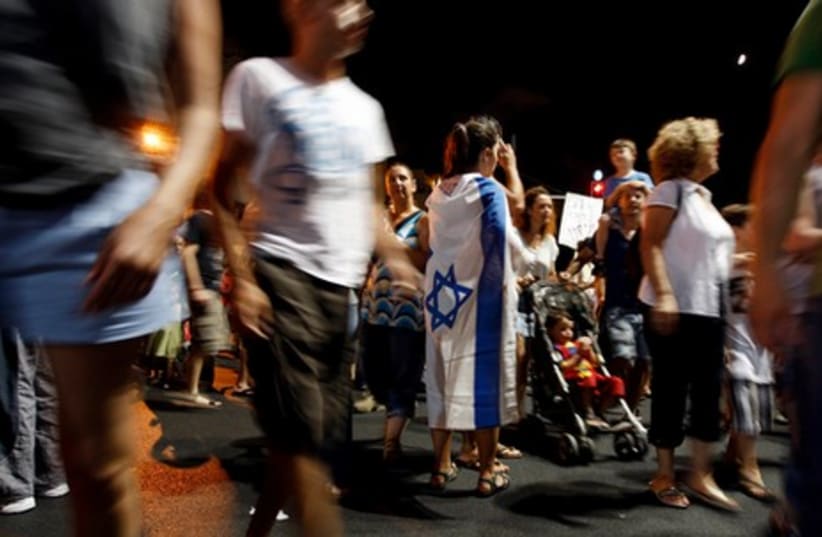
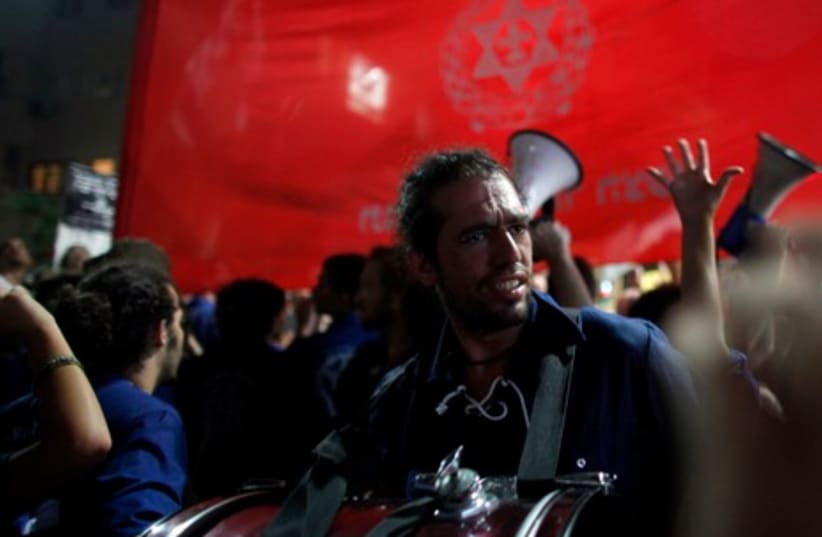
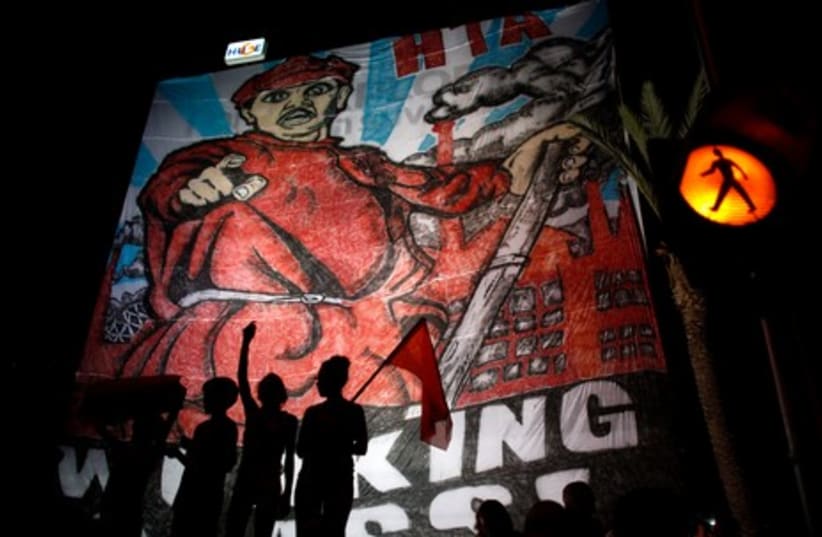
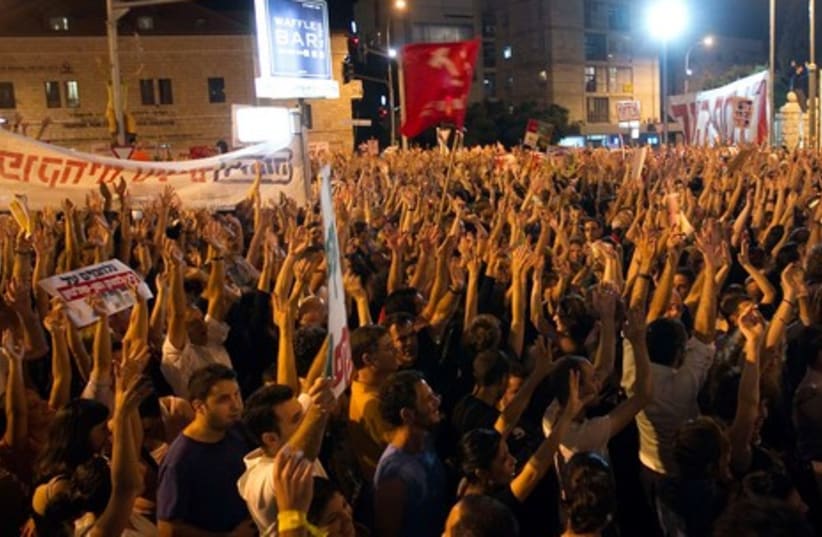
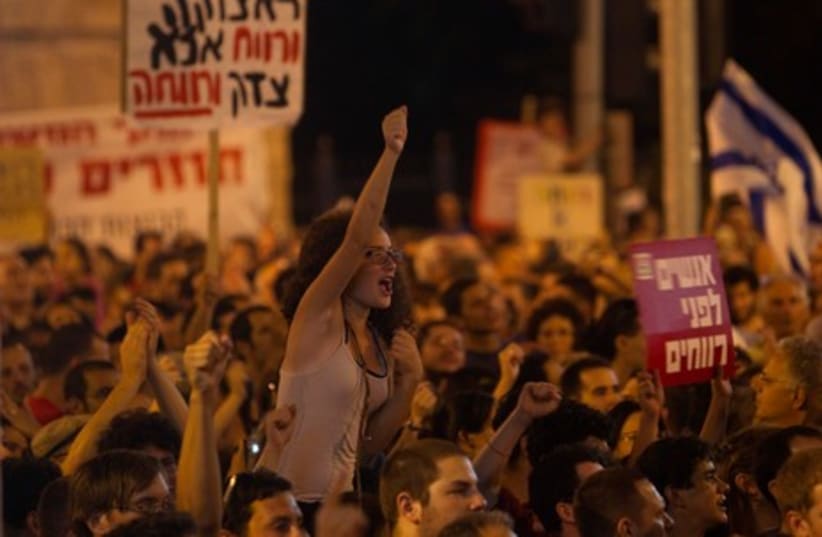
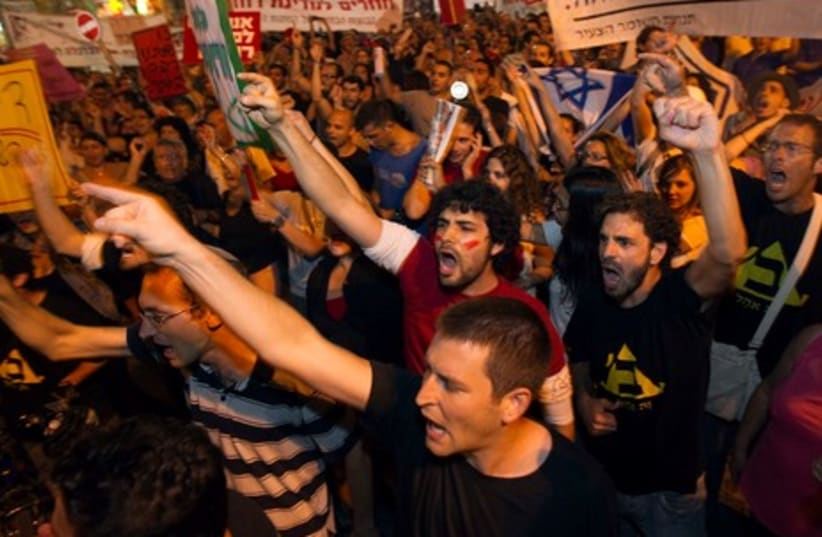
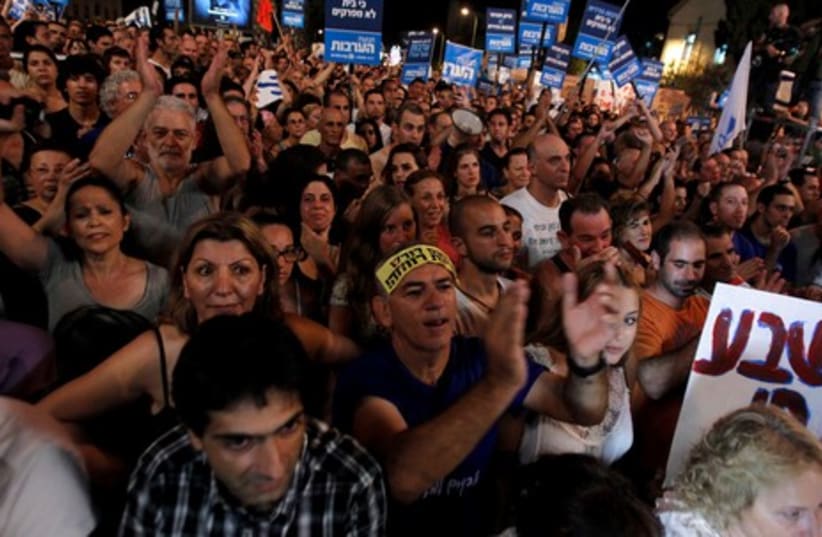
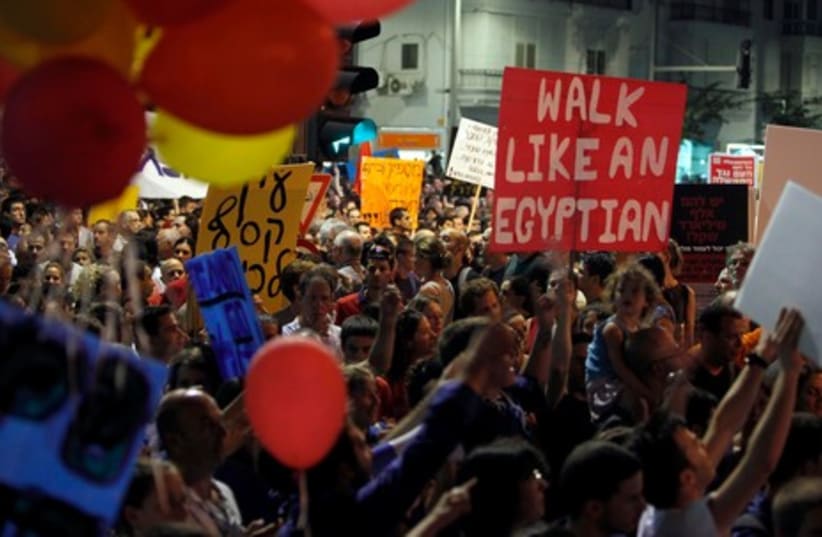
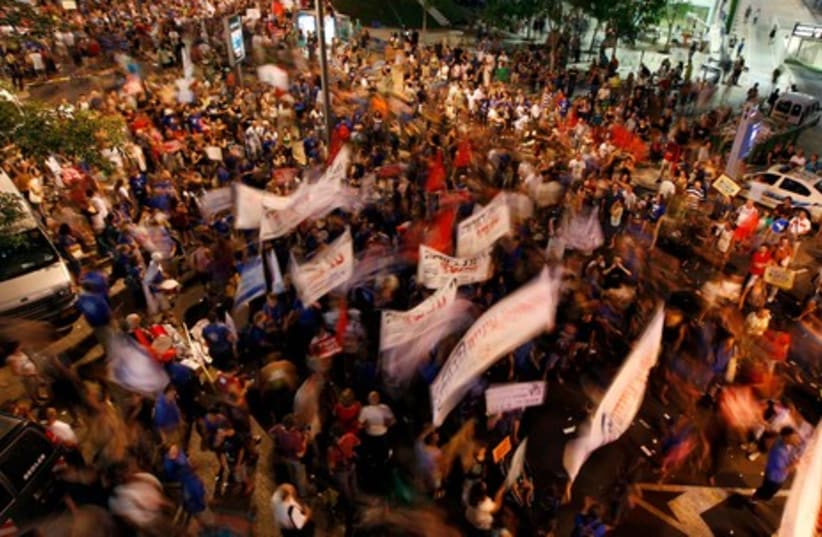

Tel Aviv was again the center of the protests, with more than 200,000 people taking part in a rally along the length of Rehov Kaplan in the center of the city, in one of the largest demonstrations in the history of the state.RELATED:Tent organizers reflect on how to keep enthusiasm highReporter's Notebook: Youth take a memorable stand for social advocacy'If we don’t connect to protesters, Labor loses relevance'Kadima to housing protesters: Make it politicalFor the third week in a row, protesters blocked the intersection of Rehov Kaplan and Ibn Gvirol after most of the social justice protesters had dispersed.Several hundred protesters remained in the intersection, singing Jewish songs and the movement's now-token chant: "The people demand social justice."Some forty minutes after the bulk of the remaining protesters left the intersection, police declared the protest illegal and announced over loudspeakers that demonstrators had ten minutes to clear the streets.The police order was met with refusals to disperse, accompanied by chants of "The police are with us, they don't have a choice," and "Mr. Officer, you too are worth more."Several dozen protesters sat in the middle of the intersection.
Roughly ten minutes later, large riot police forces arrived on the scene and began forming lines and forcefully moving the remaining protesters and bystanders out of the intersection and into a makeshift holding area using what appeared to be a "kettling" maneuver.Five protesters were arrested, Army Radio reported, although several dozen were initially detained.Police managed to reopen the littered intersection to traffic by 1:15 a.m. Police forces remained on the scene to direct traffic.Protest leaders deny movement has become politicizedThe nationwide protests were significantly larger than last Saturday’s that brought between 150,000 and 200,000 Israelis into the streets, surprising skeptics who doubted that the protests could increase in size for a third week running.The protests followed the Knesset vote on Wednesday to approve the National Housing Committees Law, which places the authority for approving building projects in the hands of regional committees. Activists had called for the bill’s cancellation as a precondition to open dialogue with the government.Following the vote, some organizers predicted that Saturday’s protests would be the biggest yet, due to a feeling that the government wasn’t listening to their demands.Itzik Shmuli, head of the National Union of Israeli Students, rebuked assertions that the movement has become partisan or overly politicized.“We aren’t asking for a change of personnel in the government or a change in the coalition in the parliament that was elected by the people. We are young people who are demanding a change in the cruel economic policies. We are demanding a personal economy over one that tramples, we are demanding an economy that takes into consideration the suffering of people and not one that only crunches numbers,” Shmuli said.“We want a more correct balance between the free market and the human economy. We are demanding serious attention to closing social gaps and for a more far-reaching answer to be given to the basic needs of the citizens of the country, in particular the country’s weakest citizens.”Rabbi Benny Lau took to the stage and issued a call for unity across Israel’s factious society.“I want to call all those in our society, Jews and non- Jews, this tent has room for all... We feel that this is an evening of tikkun (repair).”Framing his remarks against the backdrop of Tisha Be’av, which begins on Monday evening and commemorates the destruction of the First and Second Temples, Lau said, “We want to found a state based on social justice. We won’t let this struggle be about any single sector in society or another, we all want social justice.”Downtown effectively shutdown by Jerusalem protestersIn Jerusalem, more than 20,000 people marched in a mass of humanity that stretched from Gan Hasus (Horse Park), the center of the tent city, down Ben-Yehuda, across Independence Park, and into Paris Square near the Prime Minister’s Residence.“It feels like more than last week,” said Rivka, one of the activists who organized the march, referring to last Saturday night’s protests that drew upwards of 150,000 demonstrators in marches across the country.“We worked hard on this all week, we really wanted to show [Prime Minister Binyamin] Netanyahu that his behavior is unacceptable,” she said.Rivka added that organizers were worried the turnout would not be as big as last week and spent the past two days blanketing the capital with flyers, including a special effort to reach out to the religious community and hand out flyers at synagogue.Downtown was effectively shut down as crowds of people surged toward the city center from all directions. A Christian youth group from South Korea singing spirituals, a small chorus of soprano saxophones, and a dozen or so mimes joined students, parents, toddlers, and grandparents.“The students were the trigger but the problem is general and affects every sector of society,” said Hagit Hovav, the chairwoman of the Israeli Center for Social Justice, as she made her way to the protest. “It started with the apartments, but all kinds of social problems bubbled up from the ground.”Speakers and performers in front of the Prime Minister’s Residence included author Saed Kashua, the Ethniks band, musician Mosh Ben-Ari, Jerusalem City Councilwoman Rachel Azaria (Yerushalmim) and representatives from the various groups protesting, including students and leaders from the public housing protest.“I live in the dorms, so I’m not dealing with this problem right now, but I’m looking ahead, and I don’t know if there will be another protest as big as this in the next five years,” first-year medical student Yonatan Guberman said. “It says something good about the country, we’re lucky we are waking up. Things can stay the same way for years... Who knows if things will actually change now, but at least there’s the opportunity.”